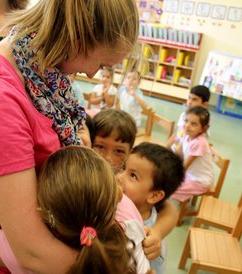Social pedagogy is an industry that considers the process of education through the prism of social phenomena characteristic of society. Each individual person develops in a certain environment, where there are foundations, moral principles, stereotypes, priorities. A person cannot exist separately from society, moreover, he actively influences those around him, introducing his attitude towards the nearest “microworld”. This process is mutual and interconnected. A person can obey the requirements of the environment, or the environment will have to accept the person as he is.
A social educator is a specialist who helps children and adolescents socialize in society, find their place in it, while remaining an independent person. This definition shows an ideal picture in terms of education, something that all professionals working with children should strive for. In practice, a social educator is a person who monitors dysfunctional families and
prevents crime among children at school. The goal of this work is to teach children to resist disorganizing conditions.
The activity of a social educator at school and other educational institutions is to study a particular family, identify problems in this unit of society, find ways to solve difficult situations, and coordinate work along a given route. Again, we are talking about job responsibilities prescribed in the regulations of an educational institution. In real life, the picture is somewhat different.

In reality, a social educator is a person who becomes a scapegoat in solving many problems. On the one hand, the professional responsibilities and expectations of society associated with the achievement of certain goals. On the other hand, the complete unwillingness of a particular dysfunctional family to solve its problems. Indeed, the contingent with which the specialist works is asocial families with drinking parents, half of whom are sure that they are deeply unhappy people who are offended by life. The other half of the category of "non-goodies" who do not care about everything, including their children. It is clear that moral education of children from this environment is comparable to a feat, because a child living in these conditions considers them normal and often follows in the footsteps of parents. Only a few are adequately aware of their situation and try to correct it. The most interesting thing is that they often achieve great results, since motivation is a very powerful thing.

In no case should you give up: if you do not deal with negative social phenomena, they will swallow the whole society. If you manage to normalize the life of at least a few families - this is a victory.
A social educator is a person whose work cannot be evaluated by grades in a journal, and its effectiveness cannot be visually demonstrated. This is a daily painstaking work, bearing fruit only after a long time. But you can’t prove it to the authorities, they require visibility and numbers.
The report of the social educator is included in the list of nomenclature of specialist affairs. It includes federal, regional legislative acts regulating this type of activity; job responsibilities; long-term work plan (where without it), which includes the planning of group and individual work; action programs for specific situations, crime prevention; card index for children with whom the specialist works; recommendations for parents and teachers.